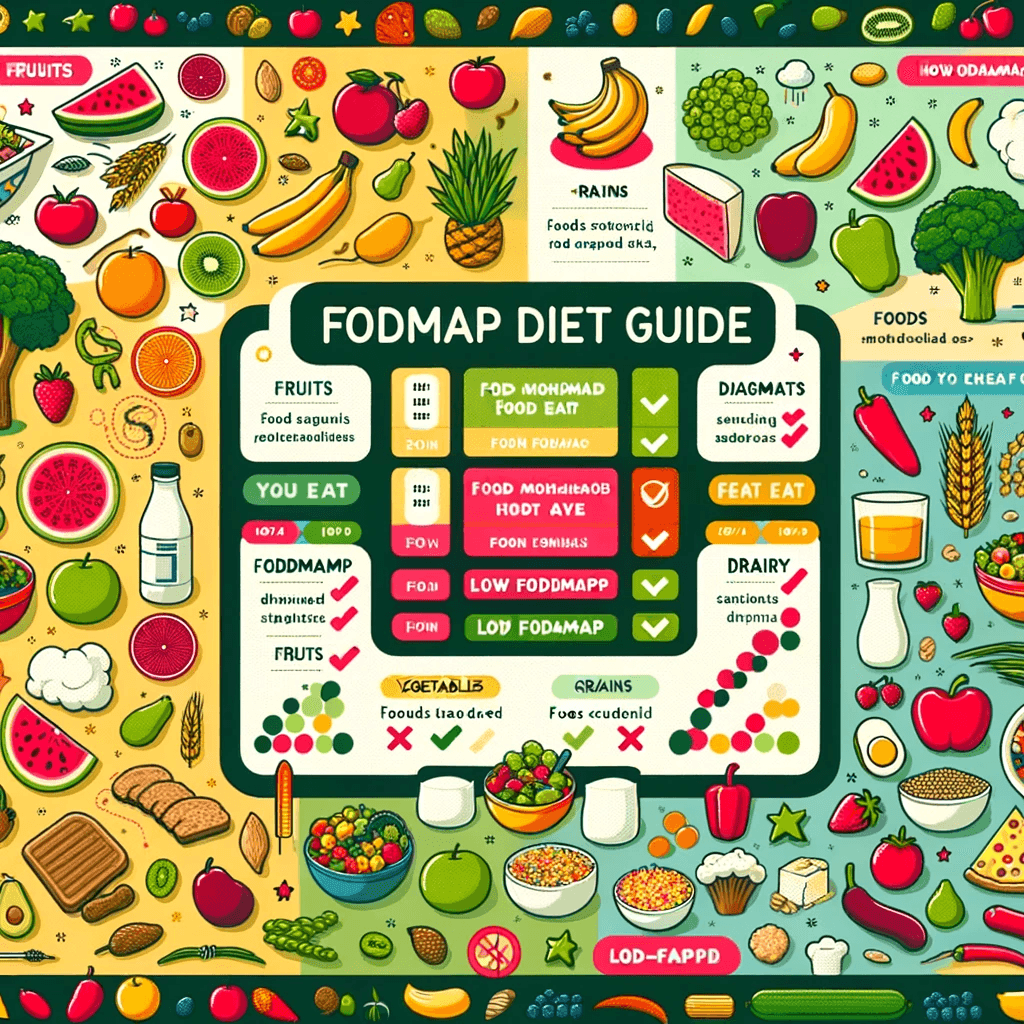Download A4Medicine Mobile App
Empower Your RCGP AKT Journey: Master the MCQs with Us!

The FODMAP diet, an acronym for Fermentable Oligo-, Di-, Mono-saccharides And Polyols, has emerged as a transformative approach for managing symptoms of Irritable Bowel Syndrome (IBS). This diet focuses on reducing the intake of specific carbohydrates that are poorly absorbed in the small intestine, which can lead to IBS symptoms such as bloating, gas, and abdominal pain. While the evidence supporting the efficacy of the FODMAP diet in alleviating IBS symptoms is compelling, it is not without potential challenges.
In the table below, we present a comprehensive view of the FODMAP diet, encompassing its purpose, the supporting evidence, implementation phases, and potential complications that may arise during its practice. Additionally, we guide patients on where to find more information and support as they navigate this dietary intervention. It's important to emphasize that the diet should ideally be undertaken with the guidance of a healthcare professional, particularly a registered dietitian, to ensure nutritional adequacy and to mitigate the risks of complications such as nutrient deficiencies and impacts on mental health and social well-being.
| Aspect | Key points |
|---|---|
| What is FODMAP? | FODMAP stands for Fermentable Oligosaccharides, Disaccharides, Monosaccharides, And Polyols, which are short-chain carbohydrates poorly absorbed in the small intestine and can trigger... |
Try our Free Plan to get the full article.